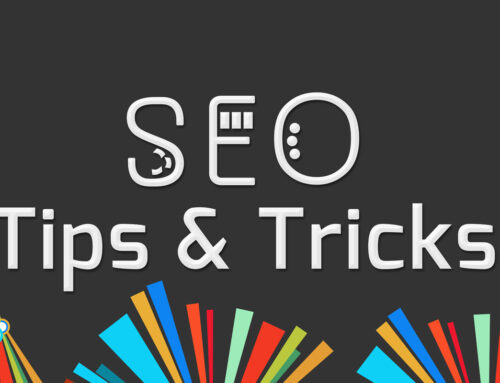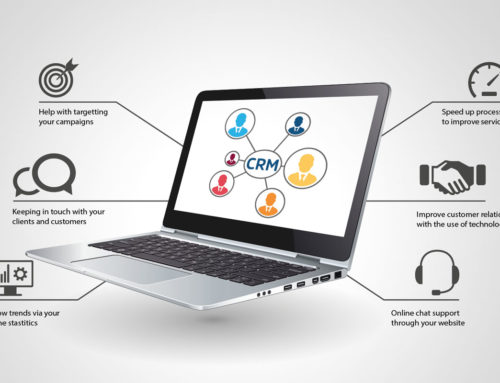It’s not what you know but who you know.
To many of us, this old proverb is particularly compelling. No matter which level of your career that you’re currently on, making (and using) connections is crucial.
However, the way you use connections as a beginner may look different than how you use them later on in your career. Throughout this article, I’ll outline how you can build and utilize your network, no matter where you are in your journey.
Using Connections as a Beginner
If you’re just getting started, you might be thinking “I don’t have any connections yet!” But on the contrary, you do.
As a beginner, you’ll be tapping into the people you already know: friends and family.
Don’t cringe. You won’t necessarily be hitting up your pals for money (though, hey, if they make an offer you can’t refuse…); but you can put them to good use as your first business connections.
Every person you know — friends, family, former co-workers and classmates — has their own personal network. Your grandmother might not have use for a freelance copywriter or graphic designer, but it’s entirely possible that she knows someone who does.
There’s no shame in using the connections you already have to get a leg up. Yep — even your grandma.
The people you know will either be your first clients or they’ll be the ones to lead your first clients to you. They’ll also be your first marketing team: helping you to shout from the rooftops that you’re open for business.
One of them may even become your first mentor.
Think hard: do you have a someone in your life who’s already achieved what you want to achieve?
Even if they’re not in the same field as you, this person can still provide you with a wealth of information. There are some aspects of our shared lifestyle that are more or less the same across the board.
Those of us who have been in the game a while will be able to share the importance of saving for taxes and how to better avoid Clients from Hell.
Gobbling up information via books and relevant blogs is awesome, but there’s nothing quite like talking to someone who’s already living the life. After all, you can’t ask a book a question (and you will have a lot of questions when you first get started).
Using Connections as an Intermediate
So you’ve been going it alone for a few months and it’s time to step up your game. What does that mean? Simple: start networking outside of your established circle.
Social Media Outlets
It’s called social media for a reason.
Yep. It’s time to set up a few profiles for yourself online.
The biggies are Facebook and Twitter, though Google+ is becoming quite the contender. And although LinkedIn is a little stiff when it comes to social interaction, it’s one of the top resources for making professional liaisons.
Choose the one or two that suit you best. Fill out your profile as completely as you can and get talking.
And those blogs you frequent? Start leaving comments! After all, reading without interaction isn’t networking — it’s web surfing.
Leaving relevant, non-spammy, comments is a great way to break the ice with not only the blogger in charge, but the blog-reading community as a whole.
If they’re reading the same blogs you are, you already have something in common with your fellow readers. Leverage that.
You obviously want to forge connections with people you want to work with; however, you shouldn’t shy away from reaching out to others. One of the best things about self-employment is the community.
There’s enough work to go around for everyone. But you’re going to miss out on a lot of great hidden gigs if you don’t get cozy and play nice with the other members of our community. We look out for each other.
You have skills that I don’t and I have skills that you don’t. If a client comes to me with a project that isn’t quite right for me — but would be perfect for you — I’ll send him or her your way. Or at least, I would — If I knew you. See where I’m going with this?
Grouping Up
Public niche-related gatherings are a classic way to make connections.
Classes (both online and off), workshops, conventions, and MeetUps are all great ways to get some face time with people who share your common interests.
If you prefer online interaction, webinars usually allot time to Q&As as well. Or, in some cases, separate attendees into chat groups.
If you’re a Twitter user, check out a TweetChat, or perhaps even start one of your own.
Sharing Your Work
At some point, you’ll need to strut your stuff outside of your own business.
For writers, this could mean creating killer guest posts for blogs. For artists, it might mean having a solo (or group) showing at the local coffee shop.
If you’re comfortable talking about your craft, you might consider booking a public speaking engagement. Or arranging a way to get yourself interviewed. (Perhaps one of your connections has an ongoing podcast that’s in need of guests?).
Don’t shy away from showing off your skills.
Building an audience takes time. But you won’t be able to build — or engage — an audience in a vacuum. Hang out on websites other than your own.
Using Connections as an “Expert”
At a certain point in your career, you’ll start to notice a shift.
You’ll no longer have to market as hard as you used to. You’ll no longer have to hunt down clients — the clients will start coming to you.
I know. If you’re not quite there yet, it sounds like an impossible dream. But it isn’t. Trust me.
So long as you don’t give up, you will get to this stage eventually. And it will be largely in part to the connections you’ve forged throughout your career.
Word of Mouth Advertising
Everyone loves bragging about how they got a great deal or made a smart purchase. When you offer a service to clients, you become your client’s “smart purchase.” And they’re going to want to brag about you to their friends.
To describe it in cliche terms, it creates a snowball effect: happy clients refer new clients to you, the new clients become happy clients and refer more new clients to you, and so on.
Referral business is the best kind of business for three simple reasons:
- Word of mouth advertising is free! Most of the marketing we do costs us time, money, or both. Word of mouth advertising is the one type of marketing that is truly free of charge. It’s just happy people sharing their happiness with others.
- You’ve already made a great impression — before they’ve even met you. First impressions matter. When you and several others are all vying for the same client, it’s a serious advantage if you’ve already got an “in” with them. Think about it: would you rather hire a complete stranger, or hire the person your friend has already praised for giving excellent results?
- Referral clients are more targeted. If you’ve gone out of your way to please a client to the extent that they want to refer you to their closest friends, chances are, you enjoyed working with them. Which means you’ll probably enjoy working with the people they send your way as well.
Your Connections are a Reflection of You
You’ve probably seen this gem from Will Smith floating around the Internet:
Look at your five closest friends. Those five friends are who you are. If you don’t like who you are then you know what you have to do.
Big Willie makes an excellent point. Not just about friendship, but about all close associations.
The people you choose to work with are a reflection of you.
Every piece in your portfolio, every business on your resume, every person who has given you a testimonial demonstrates who you are.
Your future clients look to your past clients for clues to your competence in your field. To see if you’d be a good fit.
Don’t like how your business has turned out? Take a cue from Will and look at your top five clients.
Did you enjoy working with them? Are they people/businesses you’re proud to show off as a reflection of yourself?
If not, you may need to restructure your marketing and get a new client base.
The “O” Word
Outsourcing.
For the first couple years (or more) of your freelancing career, you’ll most likely be going it alone.
Once things really get rolling, you’ll find yourself in need of assistance and — thankfully — able to afford some.
Outsourcing is not a dirty word.
Remember how your “expert” connections threw you a bone when you were grinding your way through the lower levels? Now you’re in a position to do the same for someone else!
Swapping clients is one thing — but when you get to the next level, you’ll be in a position to be the client.
Hiring someone else to take on the tasks that you either can’t or don’t want to do will leave you free to do what you’re best at. Leaving you more available than ever to take on new clients and better-paying jobs.
The Final Word
No matter what “level” you’re at, the basic rules remain the same:
- Do your best work. Always.
- Make connections.
- Thank the ones who are good to you.
Now it’s your turn.






